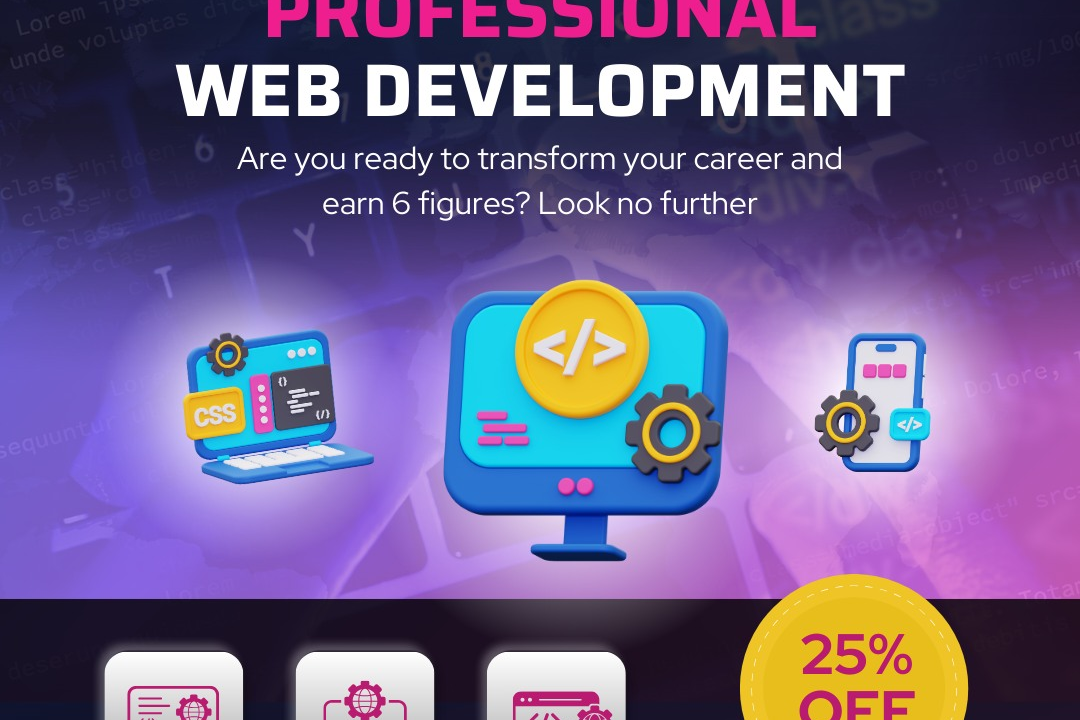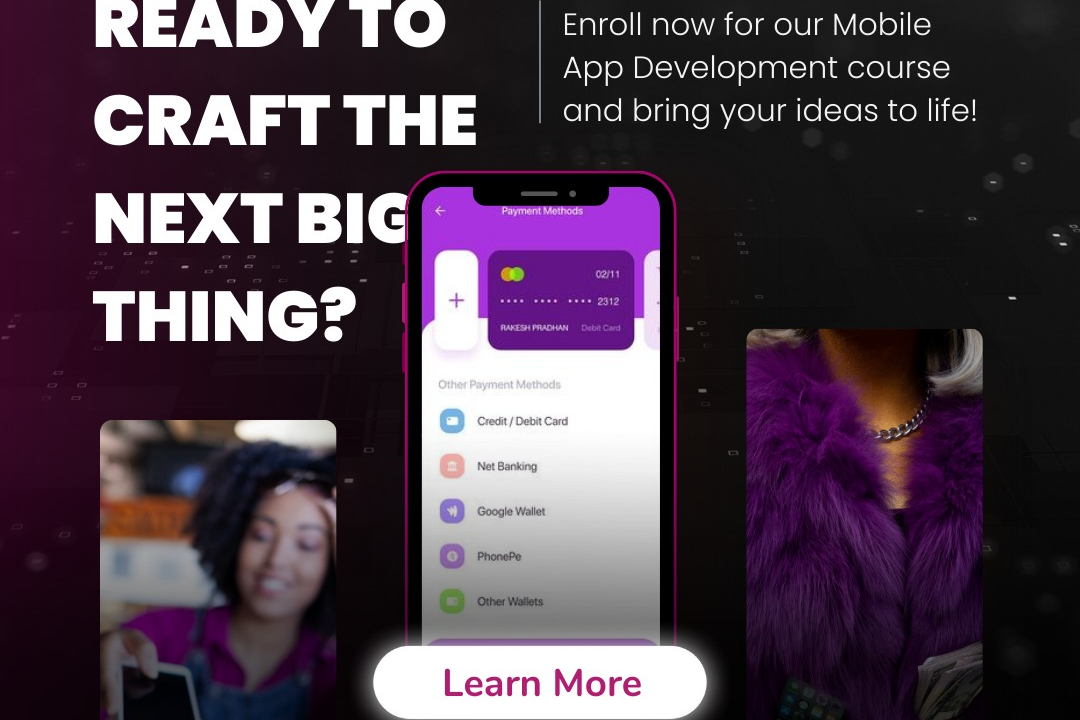Factorial Program in PHP Using While Loop
A factorial program in PHP using a while loop calculates the product of all positive integers up to
Factorial Program in PHP Using While Loop
A factorial program in PHP using a while loop is a fundamental example of implementing iterative logic to perform mathematical calculations, making it highly useful for understanding basic programming concepts such as loops and multiplication. It allows developers to efficiently compute the factorial of a number, which is essential in various mathematical and algorithmic applications, including permutations, combinations, and probability calculations. Learning to implement such programs enhances problem-solving skills and provides a foundation for more complex algorithm development, making it a valuable exercise for aspiring programmers.
To Download Our Brochure: https://www.justacademy.co/download-brochure-for-free
Message us for more information: +91 9987184296
A factorial program in PHP using a while loop is a fundamental example of implementing iterative logic to perform mathematical calculations, making it highly useful for understanding basic programming concepts such as loops and multiplication. It allows developers to efficiently compute the factorial of a number, which is essential in various mathematical and algorithmic applications, including permutations, combinations, and probability calculations. Learning to implement such programs enhances problem solving skills and provides a foundation for more complex algorithm development, making it a valuable exercise for aspiring programmers.
Course Overview
The ‘Factorial Program in PHP Using While Loop’ course provides a concise introduction to calculating factorials through PHP programming. It covers fundamental concepts of while loops, iterative logic, and basic PHP syntax, enabling learners to build efficient algorithms for factorial computation. This course is ideal for beginners eager to understand control structures and apply them to mathematical problems, laying a solid foundation for further PHP development and coding proficiency.
Course Description
Learn how to calculate factorials in PHP using a while loop. This course covers basic PHP syntax and control structures, enabling you to implement efficient iterative solutions for factorial problems. Ideal for beginners to build foundational programming skills quickly.
Key Features
1 - Comprehensive Tool Coverage: Provides hands-on training with a range of industry-standard testing tools, including Selenium, JIRA, LoadRunner, and TestRail.
2) Practical Exercises: Features real-world exercises and case studies to apply tools in various testing scenarios.
3) Interactive Learning: Includes interactive sessions with industry experts for personalized feedback and guidance.
4) Detailed Tutorials: Offers extensive tutorials and documentation on tool functionalities and best practices.
5) Advanced Techniques: Covers both fundamental and advanced techniques for using testing tools effectively.
6) Data Visualization: Integrates tools for visualizing test metrics and results, enhancing data interpretation and decision-making.
7) Tool Integration: Teaches how to integrate testing tools into the software development lifecycle for streamlined workflows.
8) Project-Based Learning: Focuses on project-based learning to build practical skills and create a portfolio of completed tasks.
9) Career Support: Provides resources and support for applying learned skills to real-world job scenarios, including resume building and interview preparation.
10) Up-to-Date Content: Ensures that course materials reflect the latest industry standards and tool updates.
Benefits of taking our course
Functional Tools
1 - PHP Development Environment: Students are introduced to PHP development environments such as XAMPP, WAMP, or MAMP, which provide an integrated server setup for writing, testing, and running PHP scripts locally. These tools simplify the setup process by offering pre configured packages that include Apache server, PHP, and MySQL, enabling students to focus on coding without worrying about complex configurations. Using these environments, learners can easily create and execute PHP files in their preferred text editors or IDEs, facilitating a smooth learning experience. The environment supports real time testing of scripts, which is crucial for understanding how loops work in practical scenarios. Familiarity with setting up and managing these tools forms a fundamental skill needed for PHP development and further project deployment.
2) Code Editors and IDEs: The course utilizes powerful code editors like Visual Studio Code, Sublime Text, or PHPStorm, which offer syntax highlighting, debugging features, code completion, and version control integration. These tools enhance productivity by providing an intuitive interface for writing clean code, identifying errors quickly, and managing multiple files efficiently. Students learn how to write, format, and organize their PHP code effectively, which is essential for maintaining clarity in loop structures and logic. Many IDEs support debugging functionalities, allowing troubleshooting of common issues encountered during loop implementation. Mastery in using these tools boosts confidence in building more complex projects later on.
3) Online PHP Documentation and Resources: Comprehensive documentation and online resources such as PHP.net are integral to understanding the syntax, functions, and best practices involved in writing PHP scripts. These resources serve as quick references for functions like `echo()`, `while()` loop syntax, and variable management. Students are encouraged to explore the extensive documentation to find solutions, optimize their code, and learn new techniques. Utilizing these resources promotes independent learning and problem solving skills, which are vital for continuous development. Access to forums and community support also helps clarify doubts and explore different approaches to implementing factorial calculations efficiently.
4) Version Control Systems: Introduction to version control tools like Git enables students to track changes, collaborate effectively, and manage different versions of their code for the factorial program. Students learn how to initialize repositories, commit changes, and revert to previous versions if needed. These practices are essential when working on real time projects, ensuring code integrity and facilitating peer reviews. Learning Git also introduces learners to industry standards, preparing them for collaborative environments in professional settings. By practicing version control, students can experiment with different implementations without the risk of losing their work, fostering a safer learning environment.
5) Debugging and Testing Tools: The course emphasizes debugging tools like browser developer consoles and PHP debugging extensions to identify errors in their factorial program. These tools help students step through their code, monitor variable values, and understand the flow of execution, especially in loop structures. Automated testing frameworks or simple print statements (`echo` statements) are used to verify output correctness and detect logical errors early. Debugging proficiency is critical for writing reliable code and optimizing loop performance. Students develop troubleshooting skills that enable them to quickly resolve issues related to infinite loops, incorrect calculations, or syntax errors, thereby improving overall code quality.
6) Integrated Development Environments (IDEs): Advanced IDEs like PHPStorm or NetBeans provide a comprehensive environment for developing PHP applications. These IDEs offer features such as code refactoring, real time error checking, and integrated testing tools that streamline the development process of looping constructs in PHP. Students learn how to leverage these features to write more efficient and error free code, making complex loop implementations manageable and easier to debug during their factorial projects.
7) Database Management Tools: Since real time projects often involve data storage, students are introduced to database management tools like phpMyAdmin and MySQL Workbench. Understanding how to store, retrieve, and manipulate data related to their PHP applications enhances the practical relevance of their learning. For example, they can store precomputed factorials or user inputs, integrating backend data management with their PHP scripts, which broadens their project scope and understanding.
8) Command Line Interface (CLI) Usage: Teaching students to run PHP scripts directly from the command line helps them understand server side scripting in a more controlled environment. Using CLI, learners can execute their factorial scripts efficiently, especially in situations where web server environments are unavailable or unnecessary. This approach deepens their understanding of PHP execution flow and prepares them for deployment scenarios and automation tasks.
9) Cloud Development Platforms: Tools like Replit, AWS Cloud9, or CodeSandbox allow students to develop PHP applications online without local setup hassles. These cloud environments facilitate real time collaboration, instant testing, and easy sharing of code. They are particularly useful for remote learning settings, providing students with accessible, scalable, and consistent development environments for practicing PHP loops and factorial computations.
10) Secure Coding Practices: The course emphasizes safe coding habits, including input validation and error handling, when dealing with user inputs in their PHP programs. This ensures that students develop robust, secure applications that resist common vulnerabilities like injection attacks or erroneous data processing, especially relevant when dealing with recursive or loop based calculations.
11 - Frameworks and Libraries: Although basic PHP looping logic does not require frameworks, introducing lightweight libraries or PHP frameworks (like Laravel or Symfony) demonstrates how structured codebases handle similar iterative processes. These tools teach students to write maintainable, scalable code early, which is essential for more complex real time projects involving factorial calculations as core components.
12) Automated Deployment Pipelines: For students progressing towards deploying their applications, concepts like CI/CD (Continuous Integration/Continuous Deployment) pipelines using tools such as Jenkins or GitHub Actions are introduced. These practices make the transition from development to production seamless and familiarizes students with professional workflows, ensuring their PHP projects, including factorial calculation modules, are reliably tested and deployed.
13) Mock APIs and Testing Tools: Utilizing tools like Postman or PHPUnit helps students perform unit testing on their PHP logic. Testing factorial functions and loop operations through automated tests ensures code correctness and robustness, emphasizing the importance of quality assurance in real time project development.
14) Responsive Web Development Tools: When integrating PHP with front end technologies, students learn to use frameworks like Bootstrap or Tailwind CSS. This encourages them to create user friendly interfaces for their mathematical calculators, enhancing their entire solution from backend logic to frontend presentation.
15) Learning Management Systems (LMS) Integration: Providing resources, quizzes, and assessments via LMS platforms helps reinforce learning. Students can submit their PHP loop exercises or projects through integrated platforms, receiving feedback and tracking progress, which improves engagement and mastery of concepts like factorial calculation with loops.
Browse our course links : https://www.justacademy.co/all-courses
To Join our FREE DEMO Session:
This information is sourced from JustAcademy
Contact Info:
Roshan Chaturvedi
Message us on Whatsapp: +91 9987184296
Email id: info@justacademy.co
Android App Development Course in Jaipur
http mytrainingcart.com courses SELENIUM-ONLINE-TRAINING












